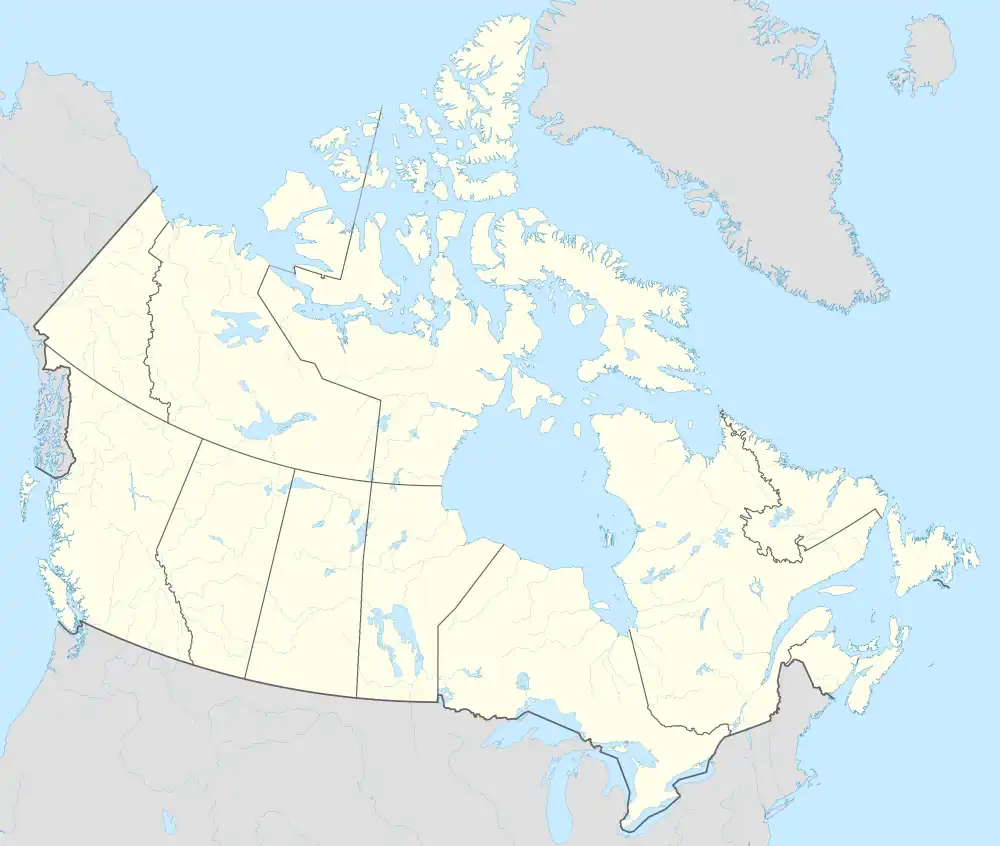Goose Fiord Formation | |
|---|---|
 Goose Fiord Formation | |
| Coordinates: 76°36′N 88°30′W / 76.6°N 88.5°W | |
| Location | Nunavut, Canada |
| Age | Silurian/Devonian |
| Dimensions | |
| • Depth | 308 metres (1,010 ft) |
The Goose Fiord Formation is a geologic formation in Nunavut, Canada. It preserves fossils that date back to the Silurian period. It is located on the southern portion of the Ellesmere Island in Canada. It also lies on the northern portion of Devon Island.
Composition
The depth of the fiord reaches nearly 308 meters. The fiord is composed largely of dolomite, whose density peaks inside the bottom 60 meters. The other major component of the fiord is siltstone.
Location
The fiord is exposed along the Schei Syncline, which is on the southern portion of the island. The fiord cannot be seen from the northern portion of Ellesmere Island. It remains on top of the Devon Island Formation, and the Blue Fiord Formation overlies the Goose Formation.
See also
References
- J. K. Rigby and Q. H. Goodbody. 1986. Malluviospongia, a new Devonian heteractinid sponge from the Bird Fiord Formation of southwestern Ellesmere Island, Northwest Territories, Canada. Canadian Journal of Earth Sciences 23:344-349 [W. Kiessling/U. Merkel]
- Various Contributors to the CSPG Lexicon of Canadian Stratigraphy, Volume 1, Arctic Archigelage. "Goose Fiord Formation".
{{cite web}}:|author=has generic name (help)CS1 maint: multiple names: authors list (link) CS1 maint: numeric names: authors list (link)
This article is issued from Wikipedia. The text is licensed under Creative Commons - Attribution - Sharealike. Additional terms may apply for the media files.